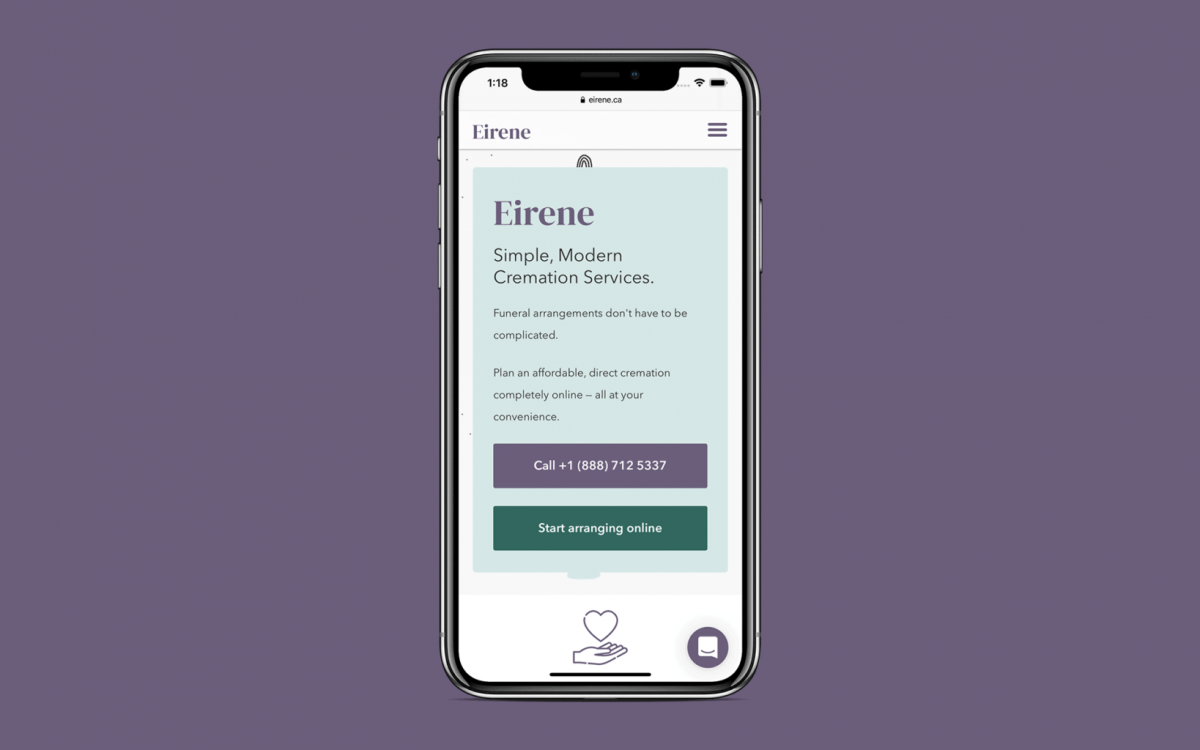The loss of a loved one can be one of the most distressing experiences in one’s life, with COVID-19 only exacerbating the grief caused in planning a memorial. Thankfully, the revolutionary realm of death tech has evolved to offer more compassionate, accessible, and even environmentally sustainable measures to help streamline and destigmatize the end-of-life planning process.
To many, the most complex and anxiety-inducing aspect of settling one’s affairs is that of a legal will and the end-of-life procedures, but Canadian company Willful is aiming to alleviate those concerns with its AI-powered, will-building tool. The service provides advice on how to arrange an estate plan based on an extensive series of considerations. A 2018 poll from Angus Reid discovered that more than half of Canadians don’t have a will, only 35 percent have one that is up to date, and 18 percent of those without a will said it was because it’s too expensive. Now, through highly reduced fees and its streamlined interface, Willful is quickly changing the negative perception that once clouded the process.
While Willful’s efforts to democratize the will-making process are certainly novel, other death tech companies have similarly turned to AI-based solutions to assist with end-of-life planning. Everdays is a Detroit-based company that offers a free smartphone app to help families announce the death of a loved one and memorialize them through the internet. The app looks to streamline the oftentimes stressful ordeal of notifying a select group of people about someone’s death by allowing a deceased person’s survivors to send a notice to specific people in their contact list. Message recipients are then directed to a personalized, feature-filled website containing stories, photos, and an obituary of the deceased.


Also interested in eliminating confusion during memorial preparations, Everplans is a Canadian company that has built an online platform for the storage of all pertinent funeral information, including everything from burial preferences to a list of charities or causes for loved ones to donate to. Naturally, Everplans asks its users to appoint a “deputy” who has access to the information and can carry out the wishes when the time comes. Essentially, Everplans aims to alleviate any anxiety in trying to interpret your loved one’s final wishes, a goal similar to that of two other companies modernizing the death tech space, Eirene and Willow.
Eirene is yet another Canadian company focused on simplifying the cremation process. By allowing users to book an affordable, direct cremation completely online, Eirene’s clients have the freedom to arrange a memorial service to fit a specific budget, timeline, and taste. While Eirene focuses on simplification and clarity, Willow’s service emphasizes a pragmatic education to the many end-of-life planning options. The service’s range of programs, tools, and workshops are built to allow clients to prepare lasting messages and articulate how they wish to be cared for after they die based on core values and priorities.
But while many have turned to the digital space in their attempts to revolutionize the end-of-life industry, certain companies have created an unlikely marriage between technology and the natural world in what is known as the eco-burial industry. Coeio is a revolutionary company that has developed the Infinity Burial Suit, a burial suit that cleanses the body of toxins and delivers nutrients to the surrounding plants. For those choosing cremation, several companies such as Eternal Reefs and Bios Urn provide nutrient-rich urns that help replenish new life in both the land and sea for future generations.




One of the great anxieties that can remain for those planning their memorial is the legacy they leave behind. Recently, several companies have emerged at the forefront of the death tech sphere hoping to ease that burden. GoodTrust and Afternote are two of the more notable companies that allow users to leave messages for loved ones, record a life story, and take care of one’s digital assets, all while securing the digital information left behind. Essentially, they ensure that on top of creating a lasting tribute, your digital accounts, photos, social media, financial data, and documents also remain protected and only available to those closest to you.
While no technological advancement can completely quell the pain of losing a loved one, some of death tech’s most innovative companies have found a way to ease the stress, confusion, and grief that is so often associated with what had become an acutely outdated industry. By creating a dialogue within the tech realm, such companies not only offer benefits to the deceased, their loved ones, and at times, our planet, but also destigmatize the notion of death itself. Perhaps Everplans’ tagline describes death tech’s mantra best: “You’re Not Immortal. Deal with it.” Now, we finally have the tools to do so properly.
[yikes-mailchimp form=”1″ title=”1″ submit=”SUBSCRIBE”]













